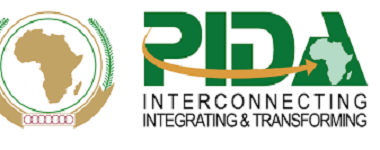The 6th PIDA Week opened virtually on Tuesday, 19 January 2021, with key speakers stressing the need for Africa to continue to invest in quality and sustainable infrastructure if the African Continental Free Trade Area (AfCFTA) is to deliver for the continent.
The AfCFTA’s main objective to boost intra-African trade can only be achieved with adequate quality infrastructure, speakers in the opening session, among them Chief Executive Officer of African Union Development Agency (AUDA-NEPAD), Dr. Ibrahim Assane Mayaki, Mr. Kgabo Mahoai, Director-General of the South African Department of International Relations and Cooperation, Infrastructure and Energy Commissioner, Dr. Amani Abou-Zeid, of the African Union Commission (AUC), and South Africa’s International Relations and Cooperation Minister, Dr. Naledi Pandor, agreed.
The ongoing coronavirus pandemic, they said, had disrupted efforts to deliver key infrastructure projects, but heightened the need for urgent investment in quality and sustainable infrastructure.
“Infrastructure development in Africa will support the adoption of hygienic practices, delivery of health services, remote working, remote learning, and the continuation of economic activity under disruptive conditions,” said Dr. Mayaki.
For her part, Dr. Pandor said; “The greatest lesson of COVID-19 is that Africans must work hard at implementing African responses to any crisis. I accept we need to have global partners, but they must be strategic additions and not enforced collaborations.” She added that good governance was crucial if Africa is to attract private investment in key infrastructure projects.
“Africa’s infrastructure development requires investment in the region of USD130bn-USD170bn annually. However, in order to attract this investment, we need to address issues of good governance which affect quality and delivery of infrastructure. PIDA project owners need to have capacity and enabling environment for driving good governance,” said Minister Pandor.
Said Mr. Mahoai in his opening statement; “Since the 1st January 2021, we have been trading under the African Continental Free Trade Area (AfCFTA). This is a historic start to the journey of increasing intra-Africa Trade, which can revitalise the continent. However, goods and services do not move on their own. The realisation of the AfCFTA will depend on investment in quality infrastructure.”
The 6th PIDA week marks ten years of the implementation of the first PIDA Proiority Action Plan (also known as PIDA PAP I) and the transition to the second Phase of the Programme (PIDA PAP II), which will run from 2021 until 2030.
The PIDA-PAP I comprised over 400 projects; and at its close in 2020, approximately 50 percent of those were in some stage of operation, construction, tendering, or financial close.
“The lessons which we can take forward into the implementation of PIDA –PAP II is that we need to have efficient use of scarce project preparation funds for early stage project preparation to take projects to bankability,” said Dr. Mayaki.
Inclusivity, sustainability, digitalisation key for PIDA-PAP II projects
The priority list of projects for PIDA-PAP II is on track to be approved by the Heads of States during the AU Summit in February, following recent validation by the Ministerial Specialized Technical Committee that met on 12 January 2021.
Dr. Mayaki said the development of PIDA PAP II was premised on an Integrated Corridor Approach, which ensures that all related corridor infrastructure, link to and complement each other, and the integration of inclusivity and sustainability features into the planning process mirroring the AU’s Agenda 2063 vision. This in order to realise the full socio-economic development impact of regional projects.
For her part, Commissioner Abou-Zeid said; “Smart technology is very important in the design of new infrastructure projects. This was one of the selection criteria for PIDA-PAP II projects.”
“Climate resilience considerations were equally important in the selection of projects because the adverse effects of climate change on Africa are frequent and serious. We need our infrastructure to withstand climate change.”
She added that PIDA-PAP II projects need to be geographically inclusive of marginalised rural areas and should consider women – not just as beneficiaries, but across the whole value of chain in infrastructure.
Mr. Amine Idriss Adoum, Director, Programme Delivery and Coordination, AUDA-NEPAD, presented the PIDA Progress Report after the opening session. The development of infrastructure at the continental level is supported through PIDA which focuses on the promotion of transboundary and transnational infrastructure. PIDA will aid the attainment of AfCFTA goals through facilitating the movement of goods, services, people and capital across the continent, as well as support the development of regional value chains.
In addition to the typical issues impacting on infrastructure delivery on the continent, PIDA Week will consider thematic issues such as infrastructure priorities in the PIDA PAP II; Post-COVID-19 infrastructure financing, delivery and resilience; the critical role of infrastructure for the economy for the implementation of AfCFTA; COVID-19 impact of reduced economic growth and changes in investment and exports patterns on the continent; and the likely transformation in demand for and consumption of transport, energy, ICT and social infrastructure.
The meeting is being held under the theme; “New decade, new realities, new priorities – positioning PIDA and infrastructure development in Africa’s continued growth and economic recovery”.

